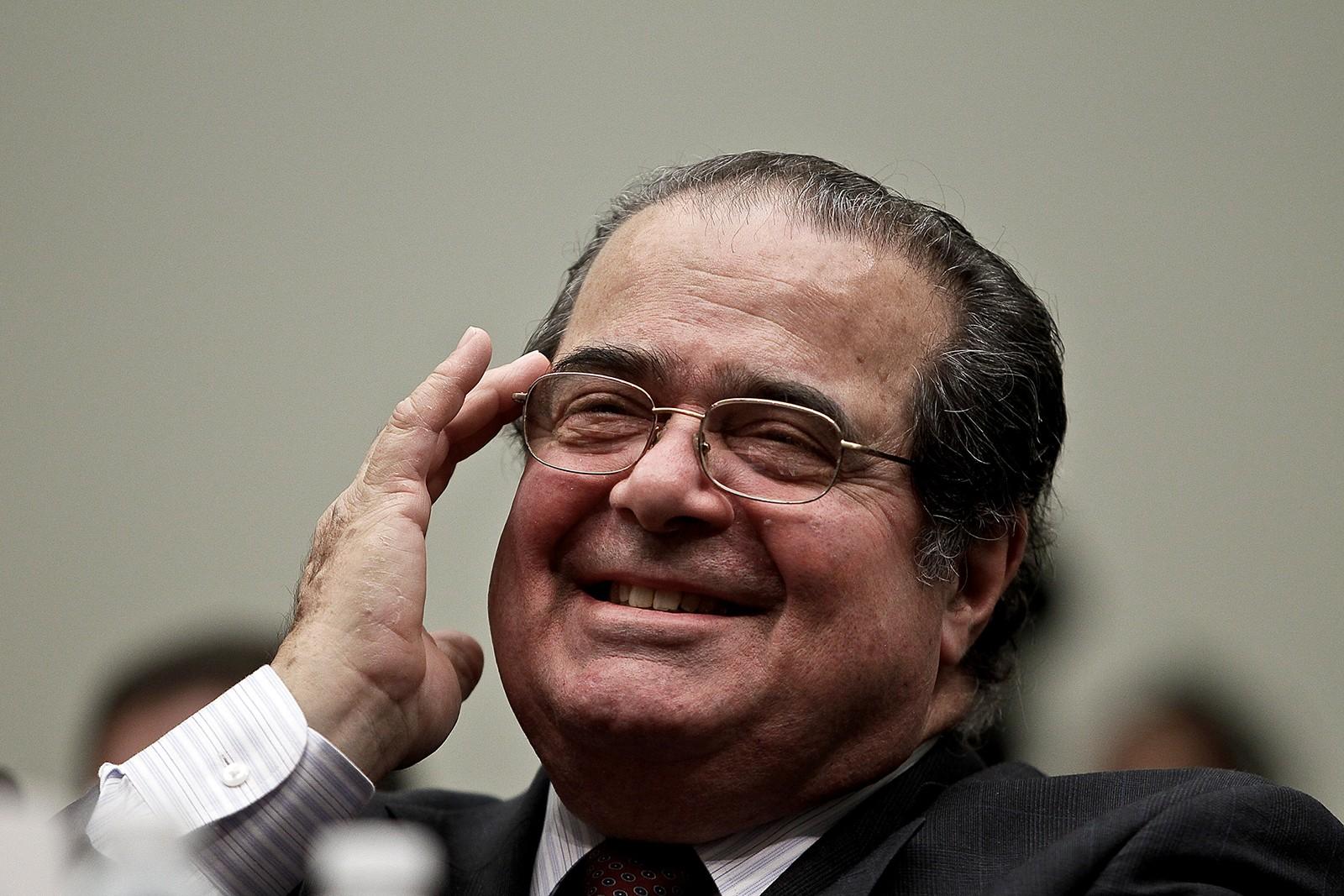Since Justice Antonin Scalia’s death in West Texas Saturday, public discourse has shifted from eulogy to criticism. This is no surprise, considering Scalia had garnered a reputation for his conservative nature of strictly interpreting the U.S. Constitution throughout his tenure.
Scalia’s most controversial comments included his referral to the Voting Rights Act of 1965 as a sign of racial entitlement, suggesting black students would perform better at “slower-track schools” and comparing homosexuality to bestiality and incest. With opinions such as these, it’s easy to see why Scalia was so scorned.
Scalia argued that his position on such topics stemmed from their place in the Constitution, and not from personal bias. He was strongly opinionated in the court. Just look his lengthy dissent in Obergefell v. Hodges, in which he urged Americans to “ask the nearest hippie” about freedom of intimacy in marriage.
With this in mind, social media became ripe with criticism of Scalia’s rulings immediately following the news of his death. There was no place for mourning on Twitter.
Similarly, when politically polarizing former British Prime Minister Margaret Thatcher died in 2013, the song “Ding-Dong! The Witch is Dead” from “The Wizard of Oz” became the United Kingdom’s No. 2 song after an intense campaign by anti-Thatcher groups.
This raises the question: Do the dead immediately deserve respect?
Not exactly. Public figures’ lives are, in a way, public domain. They can be discussed at will however and whenever the public wants. Scalia had critics when he was alive, and they’ve followed him — and multiplied — in his death. Just as politicians and journalists alike have seized the news Scalia’s death to discuss the political burden of replacing him, others have used it to criticize his strictly conservative views.
As a dead justice, Scalia is relegated to being mentioned when his past rulings or empty seat come up.
Criticizing how the way Scalia did his job is fair. But in politics, the line between the position and the person behind it is frequently blurred.
The Supreme Court indirectly represents every U.S. citizen, so it’s important to recognize that Scalia balanced out the court with his strict interpretation of the constitution. Regardless of your political ideology, you have to admire the way Scalia stuck to his own opinions in the court.
His job performance in no way dictated the kind of person he was. He could’ve been a great father or friend. Scalia just stuck to his political ideology so strongly that people couldn’t separate the man from the justice. He was more than just his political ideas.
But when it comes to social issues, which are deeply tied to identities, it’s another matter entirely. Though Scalia’s job was to rule on the constitutionality of cases, his conservative opinions became targets of hatred only because the way he voted made it seem like he hated others.
Some women, minorities and LGBT individuals interpret his textualist rulings as personal attacks. They have the right to disrespect him just as he disrespected them.
People can pick apart every decision Scalia made in court, but it’s important to honor the power he had and the position he held. He wasn’t just appointed by chance. He worked his way up the court system to one of the most respected positions in the country.
While Supreme Court justices do have their own political ideologies, the court itself isn’t supposed to be politically loaded. All of the justices must be appointed by the president and approved by the Senate. They still have a duty to indirectly represent the American people’s interpretation of laws. Scalia refused to change his views along with changing American opinion, which explains why he was so simultaneously revered and hated.
Supreme Court justices reflect us as an American people. Toward the end, Scalia just didn’t do that. The United States seems to be at a particularly liberal place in history, and Scalia never acknowledged that. Public resentment came as no wonder to him, then.
Hopefully his death actually motivates people to care about what happens in the judicial system. If Americans are up in arms about Scalia’s decisions, then the best they can do is talk about it and vote. And if the liberal-leaning Justice Ruth Bader Ginsburg can call Scalia her “best buddy,” then the least we can do is hate the figure, but respect the man.






















































































































